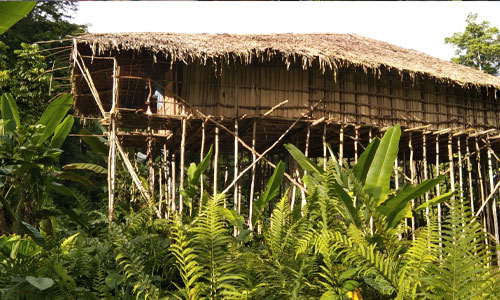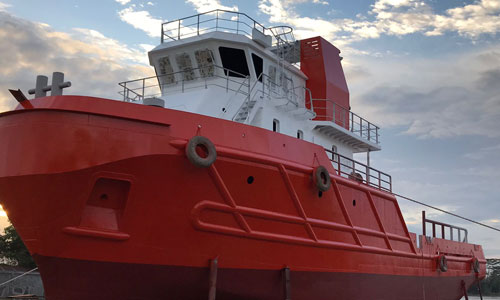Yapen remains isolated, but thanks to GG International’s culturally aware strategy, it is no longer isolated from dialogue, dignity, and development.
— Yapen Island, Indonesia —
isolation. reconciliation. sustainability.








Bridging Divides in the Forests of Yapen: GG International's Role in Conflict Resolution and Resource Reform
“Sustainable forestry isn’t only about managing trees—it’s about managing relationships.”
— Shaan Stevens, Senior Advisor, GG International
Challenge
In May 2000, GG International was engaged by the Kodeco Group to conduct an independent audit and review of forest harvesting and transportation plans for its remote timber operations in Indonesia. While the technical mandate was clear, the true challenge emerged on the forested island of Yapen, off the coast of Biak in Papua, reachable only by light water plane and, as the team discovered on departure, a ten-hour tugboat journey due to weather constraints.
The mill, operated by Kodeco Group, had encountered a serious breakdown in relations with the local indigenous communities. Tensions escalated into violent confrontations, with reports of mill workers being attacked by villagers frustrated by the lack of consultation and perceived exploitation of their natural resources. While the harvesting operations had passed technical muster, the project's social license to operate had all but collapsed. Resolving the crisis required more than technical expertise—it required cultural sensitivity, economic innovation, and trust-building.
Strategy
GG International's team, led by Dr. Angus McPherson (Project Director) and Shaan Stevens (Senior Finance Advisor), recognized that restoring trust was the only way forward. They engaged directly with community leaders, listening to long-standing grievances about exclusion from decision-making and a lack of tangible local benefits. These discussions revealed that while the community opposed indiscriminate logging, they were open to cooperation—if their cultural and economic interests were respected.
To address this, GG International brokered a memorandum of understanding between Kodeco and the indigenous communities. A key provision was that all waste and surplus wood from the mill would be allocated to the local population, enabling them to craft traditional handicrafts and furniture—both culturally significant and economically valuable. The initiative not only reduced wood waste but offered a livelihood stream to villagers, many of whom had been excluded from the formal economy.
Concurrently, GG International coordinated a financial review of operations, transportation logistics from Yapen to Biak and onward to Jakarta, and future revenue projections. These findings were packaged as part of a restructuring plan submitted to IBRA (the Indonesian Bank Restructuring Agency) to assist in refinancing Kodeco's forest business under post-crisis financial reform program
Transformation
GG International's engagement on Yapen Island turned a potentially explosive situation into a model for corporate-community collaboration in remote resource extraction contexts. The community’s anger was defused, and the attacks on mill workers ceased. Handicraft production flourished, creating a new micro-economy rooted in shared benefit rather than resource conflict.
The technical recommendations on transportation and harvesting were adopted, and the mill resumed operations with strengthened stakeholder support. More importantly, the IBRA debt restructuring package—informed by GG International’s financial due diligence—provided Kodeco Group with a viable path forward during Indonesia’s post-Asian Crisis recovery.